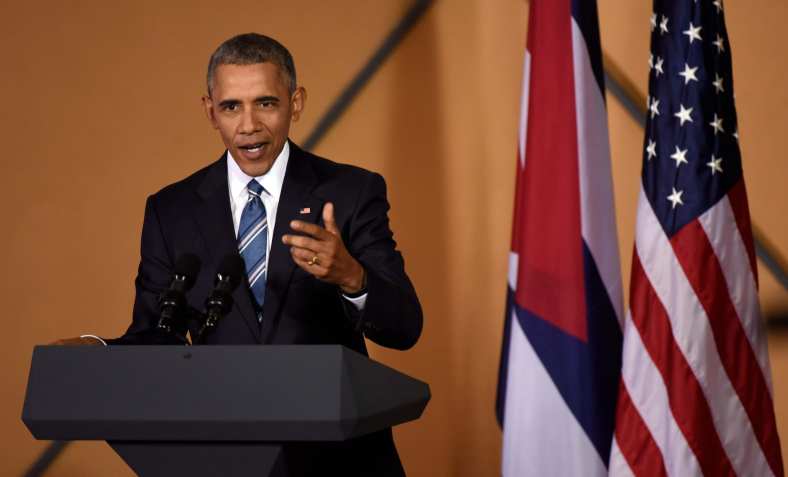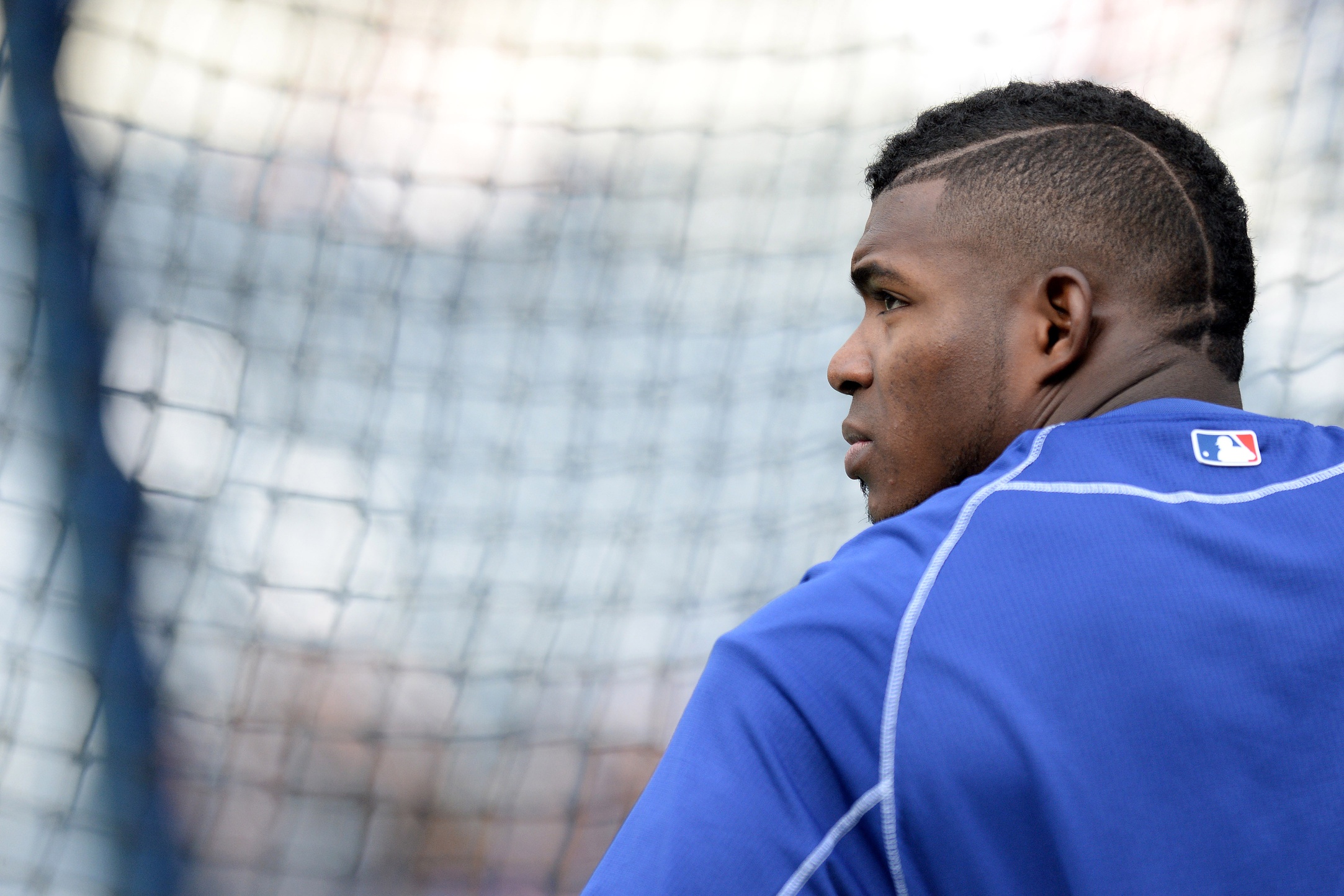
United States President Barack Obama was born four months after the ill-fated attempt of the government he now helps run to invade the small island nation of Cuba in April of 1961.
Cuban President Raul Castro, the brother of long-time leader Fidel, had not yet turned 30 years old at the time of the failed invasion.
The two took a huge step towards normalized relations between the United States and Cuba this week with Obama becoming the first sitting U.S. President to visit the country since Calvin Coolidge.
https://www.youtube.com/watch?v=-9FqF6eOmro
It was a historical week of festivities in Havana, including a stirring speech from President Obama that called out common links between Cuba and the U.S.
The speech also focused on the political and ideological differences between the two countries — differences that have existed for the better part of the last century. Differences that brought the world to the brink of nuclear war.
Later on Tuesday afternoon, Obama and Castro attended an exhibition baseball game between the Major League Baseball’s Tampa Bay Rays and the Cuban national team in Havana. It was a awe-inspiring moment for the two nations and the Western Hemisphere as a whole.
It represented a changing of the guard. A move forward from the Cold War mentality that the two nations had shared for so many years.
It also showed that one national pastime, baseball, can be shared by two nations, a common link that that dates almost as far back as the two countries shared identity of being built on the hard work and blood of African slaves themselves.
There is a political aspect here that’s best reserved for a conversation at a different time and at a different place. There’s also so many previous issues that need to be worked out between both sides before the long dark history of relations can become a thing of the past.
There is, however, an aspect here that we need to focus on. A singular focus that can help bridge the seemingly insurmountable gap between the two long-time foes.
While Cuba and the United States won’t soon see eye to eye regarding their political and socioeconomic differences, one thing can help bring the two sides together.

Baseball.
The layers here are real and vast. They represent a shared identity, and yes, an economic divide that is already well known in the baseball world itself.
Those Cuban national players taking on the Rays Tuesday in Havana were on the same playing field. They were equals in terms of talent. They weren’t, however, equals when it comes to pay.
Back in 2014, the medium monthly salary for professional baseball players in Cuba was $125 American dollars (via Newsweek).
If that seems a bit out of whack with today’s Major League Baseball players, that’s because it is. This upcoming season alone, these very same Tampa Bay Rays, a team with one of the smallest payrolls in the game, are seeing their top-33 players earn a combined $59.8 million for an average of $1.8 million per player.
The economic differences within the game of baseball represent a minor off-branch of the larger divide between these two nations.
America exists in a free-market system in which earning potential isn’t capped. On the other hand, Cuba’s socialist economic philosophy is the complete antithesis. Until something changes regarding the island nation’s model, we aren’t going to see much bridging of the gap here.
This, in the context of the larger divide between capitalist economies and those systems that push the complete control of their models to the government itself.
Though, the increased relationship between the same game in these two vastly different nations could end up representing a higher ceiling for Cuban players. A better quality of life, per say.
We have seen the stories repeated over and over again. Cubans risking everything on life boats, rafts and in shipping vessels to make their way to the United States.
Obama himself touched on this during his resounding speech in Havana:
“And that short distance has been crossed by hundreds of thousands of Cuban exiles on planes and makeshift rafts, who came to America in pursuit of freedom and opportunity,” Obama said, via Time.com. “Sometimes leaving behind everything they owned and every person that they loved.”
The stories are by now well known. From the Hernandez brothers to Yasiel Puig, the willingness of these Cubans to risk everything for an opportunity at the free-market system the United States possesses is an important part of the divide between these two nations, even when it comes to baseball itself.

Puig himself was earning $17 a month in Cuba prior to his daring escape from the communist country. It’s an escape that entailed everything from dehydration to being held captive by smugglers attempting to get him into the United States — smugglers that would end up attempting to “auction” Puig off to potential sports agents (via Los Angeles Magazine).
As harrowing as it might sound, Puig’s story is not uncommon. It’s something that has been repeated over and over again since Cuban nationals started making their way to the United States to play baseball.
In the larger context, it’s something that has existed since the overthrow of Fulgencio Batista’s regime and the implementation of Fidel Castro to power over a half century ago. That is to say, Cubans, of all walks of life, risking it all to come to American shores.
This is one bridge that can be mended relatively quickly when it comes to American-Cuban relations.
It’s not a change that needs to create widespread economic reforms in Cuba — reforms that if enacted correctly will take years. Instead, it’s about the Cuban government understanding that it’s losing the brightest of the nation’s athletes to greener (and richer) pastures a bit further north.
It’s also, as Obama indicated, our shared national pastime that can help bridge this increasingly evident gap:
“We share a national past time, la pelotero” the president said. “And later today our players will compete on the same Havana field that Jackie Robinson played on before he made his major league debut.”
As polar opposite nations begin the path to normalized relations, much like the United States and Cuba are right now, the differences become even more vast. This will be as evident as ever when it comes to the game of baseball.
Continued exhibition games in Cuba and the U.S., the potential for spring training baseball in the small island nation … all of these possibilities will bring to light the wide gap in pay between Cuban baseball players and professionals taking the field in Major League Baseball.
Unless Cuba wants to see a continued mass exodus of its best players, it will have to reform the process in which the nation’s athletes are treated.
It’s a realization I for one hope both sides come to eventually. The United States can help Cuba chart its path to reform within the landscape of the nation’s baseball community — a landscape that today is still controlled by the government.
No one is expecting Cuban baseball to take off like the economic engine that Major League Baseball has become. No one is expecting seven-figure annual salaries. But the right to earn a decent living should be an aspect of this situation that all sides can agree on.
More than anything, baseball itself can create this one common link during a process of normalization that will see plenty of bumps in the roads.
In speaking to the Cuban people in Havana this week, Obama made it clear the United States isn’t going to impose its political ideology and economic system on Cuba. Instead, the president made sure to point out that such change has to be created from within the Cuban society itself.
He did so by acknowledging America’s intent to support human rights on an international stage, even going as far to question Cuba’s own model of government. A stance that was as awe-inspiring as it was shocking in front of the Cuban government and its people in the capital city of the communist nation. From an American president nonetheless.

Within the confines of baseball, improved facilities, larger pay and more respect. These are three things that every single Cuban defector playing baseball in the United States today pointed out as major issues in their homeland.
This is something that will continue to be placed on the front burner as largely ceremonially events such as the exhibition game this week in Havana take place on a more frequent basis.
The happy medium to find here is real. Neither Cuba nor the United States wants a repeat of the issues we are seeing in other Latin American countries today.
Every single Major League Baseball team has an academy in the Dominican Republic. While this has served well for those players who have made it to the big leagues in the states, it has done very little for those left behind in the DR.
Baseball itself can’t be a way out for a small minority of the players when it leaves the rest still dealing with the shambles of the system back home. It’s akin to the understanding that many children in American inner-cities view sports as their only way out of that impoverished life.
In short, it’s a false dichotomy.
Without improving the day-to-day lives of the average Cuban, giving baseball players a way out isn’t going to change a whole lot. It’s in this that using a sport to help narrow the gap ends. It’s also in this that the prospects for wholesale changes don’t start nor end with baseball itself.

Cuba’s educational system is the best in Latin America. It also imposes forced indoctrination into the the learning process. It’s also an educational system that a vast majority of current Major League Baseball players grew up with.
These aren’t issues that can be fixed due to a game on a baseball diamond. They are embedded within a larger philosophical divide that could destroy any progress that’s been made in relations between the two nations.
These divides don’t end there. They exist within healthcare, environmental policies, means of production and nearly every other daily aspect of life in the two countries.
But as we have seen in the history our relations with other nations, even just one common link can be used to alter the path of the future. With Great Britain, it was a shared history. With Japan, it was about rebuilding after the unthinkable human tragedy that nuclear war brought.
No one is suggesting that this one common link can come close to the ties that bind the United State’s with these former foes.
It could, however, act as a start. Potentially the first step to continued progression in terms of relations, and with that, an increase in the standard of living of those closely impacted by this week’s events.
After all, it would have seemed impossible three decades ago to comprehend a sitting American President on the baseball field with the Cuban leader engaging in an exchange of the two country’s national anthems.
As ceremonial as that might have been, it will leave an indelible mark for both the United States and Cuba as the process to a completely new era of relations continues.
That’s how the Cuban question can start to be answered — with baseball, the one common link.